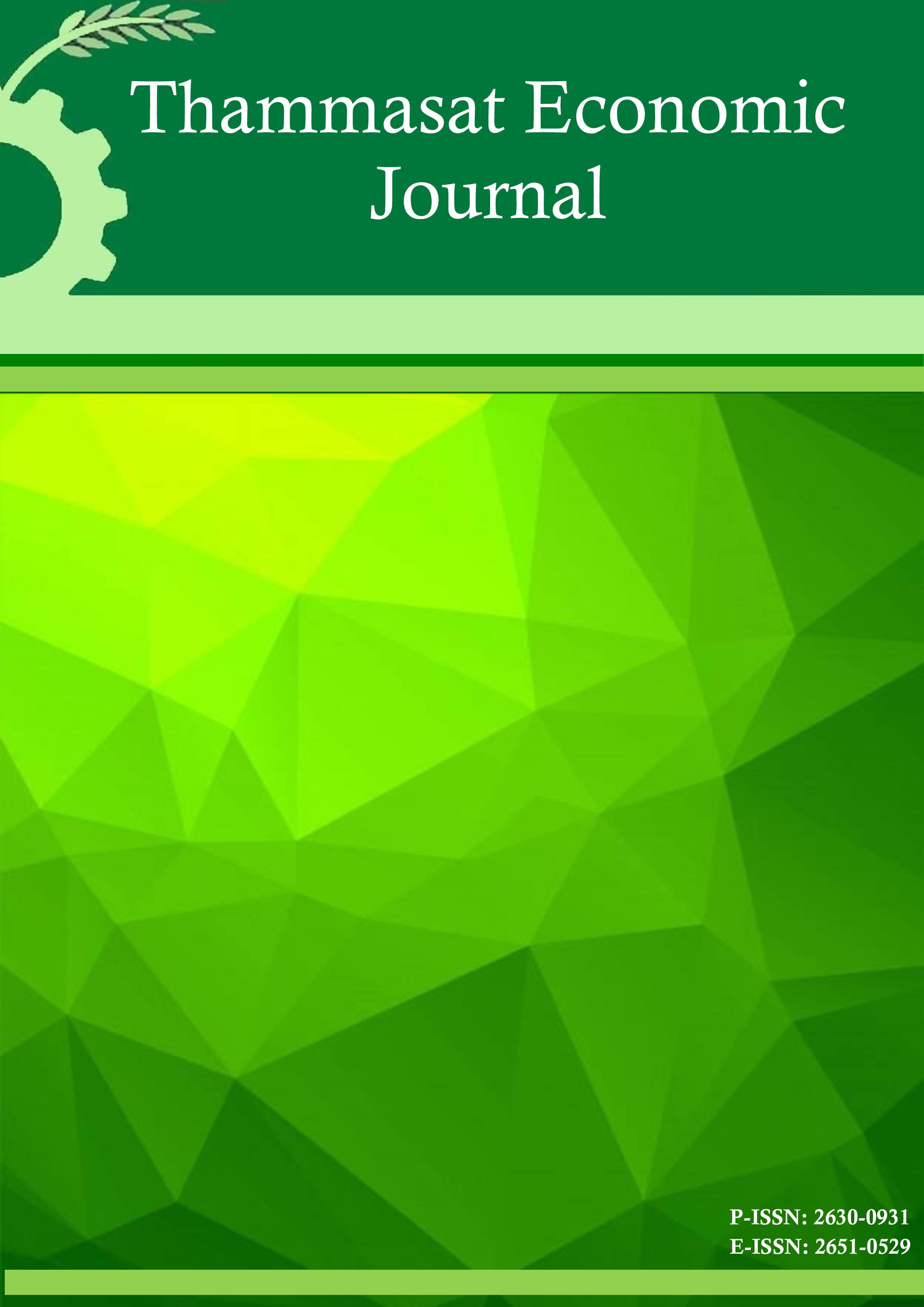Can a “Compulsory Savings” Scheme Enhance the Future Happiness of Society? A survey of the Mandatory Provident Fund (MPF) scheme in Hong Kong
คำสำคัญ:
Compulsory Savings Scheme, Ageing, Happiness, Retirement, Mandatory Provident Fund (MPF)บทคัดย่อ
Ageing populations are and will continue to be a major issue for most Asian countries in the future. Hong Kong’s population is ageing so rapidly that the Hong Kong government has predicted that by 2033, 27 % of the population will be over the usual retirement age of 65.The Mandatory Provident Fund (MPF) policy was introduced in 2000 as a retirement protection system. The core purpose of the MPF is a “compulsory saving” scheme to secure future well-being in retirement. This paper uses an ordered probit model to review achievement of the MPF scheme in terms of self-reported, expected happiness in retirement. A surey, conducted by “Economics and Well-being Research” of Hong Kong Shue Yan University in February 2007, used randomly selected telephone numbers from residential telephone directories to collect the data. A total of 543 respondents were successfully interviewed. This paper aims to answer the following two questions: 1) what are some of the identified determinants of expected happiness in retirement? 2) What can other countries learn from the experience of implementing the MPF in Hong Kong?
เอกสารอ้างอิง
2. Chen C. (2001). “Aging and life satisfaction,” Social Indicators Research. Apr, Vol.54, No. 1; p. 57.
3. Dorfman L.T. (1992), Academics and the transition to retirement, Educational Gerontology, 18, pp. 343-363.
4. Gall T. L. and Evans. D.R. (2000), Pre-retirement Expectations and the quality of life of male retirees in later retirement, Canadian Journal of Behavioral Science, Jul Vol.32, No. 3; pp.187.
5. Greene, W. H. (2000) Econometric Analysis, 4th edition, Prentice-Hall International.
6. Hazel Bateman (2007), “Pension Reform and the Development of Pension Systems: An Evaluation of World Bank Assistance,” Background Paper, South Korea Country Study.
7. Mandatory Provident Fund Schemes Authority (2007) Annual Report, 2006-07, Table 4 Page 110.
8. Michalos A.C. and Orlando J.A. (2006) “Quality of Life of Some Under-Represented Survey Respondents: Youth, Aboriginals and Unemployed,” Social Indicators Research. Vol.79, No. 2; p. 191.
9. Miyata S. (2003) “Households’ Risk Attitudes in Indonesian Villages,” Applied Economics, 35, pp.573–583.
10. Richardson V. and Kilty K.M. (1991), “Adjustment to Retirement: Continuity vs. Discontinuity, International Journal of Aging and Human Development, 33, pp. 151-169.
11. Rivera B. (2001) “The Effects of Public Health Spending on Self-Assessed Health Status: An Ordered Probit Model,” Applied Economics, 33, pp.1313 – 1319.
12. Ruut V. (2005), “Apparent Quality-of-Life in Nations: How Long and Happy People Live,” Social Indicators Research 71: pp.61–86.
13. Shah, Ajay, (2000), “Issues in Pension System Reform in India,” Indira Gandhi Institute for Development Research, Mumbai, India.
14. Tsou M. W. and Liu J.T. (2001) “Happiness and Domain Satisfaction in Taiwan,” Journal of Happiness Studies, Vol. 2, No. 3, pp. 269-88.
15. Winkelmann R. (2005) “Subjective Well-Being and the Family: Results from an Ordered Probit Model with Multiple Random Effects,” Empirical Economics, October, Vol. 30, No. 3, pp. 749-761.
16. World Bank (1994), Averting the Old Age Crisis : Policies to Protect the Old and Promote Growth. Oxford University Press, London.







